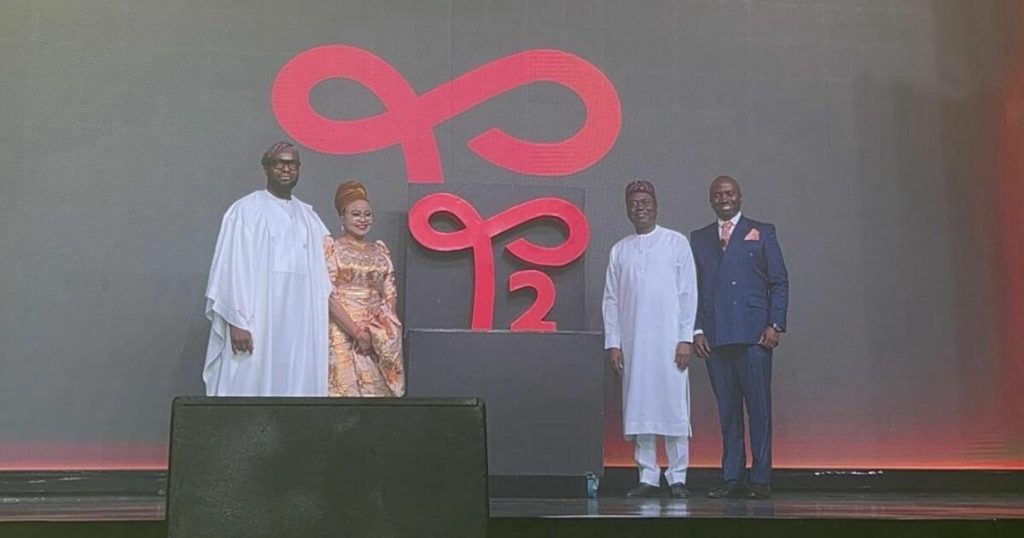Paragraph 1: T2’s Revival Strategy in Nigeria’s Telecom Market
T2, formerly known as 9mobile, is embarking on a significant network overhaul to revitalize its position in Nigeria’s competitive telecommunications landscape. This move signifies a crucial step in the company’s turnaround strategy after a period of decline. The core of this revitalization effort revolves around a strategic partnership with Huawei, a global leader in telecommunications infrastructure. This collaboration aims to rebuild T2’s core network, enhancing capacity, resilience, and security, thereby laying the foundation for a resurgence in the market. This initiative represents T2’s first major undertaking since its rebranding, reflecting a renewed commitment to innovation and a determination to reclaim its position as a key player in the industry. The backdrop to this revitalization is a market dominated by giants like MTN, Airtel, and Globacom, against whom T2 aims to compete effectively.
Paragraph 2: Addressing Legacy Challenges and Charting a New Course
T2’s rebranding and network overhaul are a direct response to the significant challenges the company faced under its previous identity, 9mobile. These challenges included a dwindling subscriber base, with fewer than 3,000 customers remaining on the network by the time of the rebrand, and widespread dissatisfaction due to unreliable service and poor network coverage. These issues had eroded customer trust and significantly hampered the company’s market share. The collaboration with Huawei is viewed as a pivotal step in addressing these legacy problems and rebuilding customer confidence. The four-phase roadmap—stabilization, modernization, transformation, and growth—provides a clear strategic framework for T2’s recovery and future expansion within Nigeria’s substantial $75 billion telecom market.
Paragraph 3: Huawei’s Role in T2’s Transformation
Huawei’s expertise and advanced technology play a crucial role in T2’s ambitious transformation plan. The multi-million dollar deal entails a comprehensive overhaul of T2’s network infrastructure, leveraging Huawei’s cutting-edge solutions to enhance capacity, resilience, and security. This move underscores Huawei’s commitment to supporting telecom development across Africa, aligning with T2’s objectives to modernize its network and provide improved services. The partnership is not merely a contractual agreement but a strategic alliance designed to propel T2’s growth and competitiveness in the long term. Huawei’s experience in deploying large-scale network infrastructure projects across the continent positions them as a valuable partner in T2’s journey towards recovery and market expansion. The project aims to not only address current network deficiencies but also to future-proof the infrastructure, enabling T2 to adapt to evolving technological advancements and customer demands.
Paragraph 4: A Strategic Partnership for Long-Term Growth
The collaboration between T2 and Huawei is more than just a network upgrade; it represents a strategic partnership focused on long-term growth and innovation. Both companies view this collaboration as a catalyst for positive change, enabling T2 to deliver enhanced services and regain market share. For T2, the partnership with Huawei is seen as vital for its ability to compete effectively in the Nigerian telecommunications market. It aims to provide the necessary infrastructure and technological capabilities to offer a competitive range of services. For Huawei, the project provides an opportunity to showcase its advanced technologies and strengthen its presence in the African market, contributing to the wider development of telecommunications infrastructure across the continent.
Paragraph 5: Bridging the Coverage Gap with MTN Roaming
While the long-term solution lies in the network overhaul with Huawei, T2 also adopted a short-term strategy to address its coverage limitations. Prior to the rebranding, 9mobile (now T2) secured a three-year national roaming agreement with MTN Nigeria, the country’s largest telecom operator. This agreement, approved by the Nigerian Communications Commission (NCC), allows T2 subscribers to access MTN’s extensive network in areas where T2’s coverage is limited or non-existent. This interim solution was crucial for retaining customers and maintaining service continuity while the company focused on rebuilding its own infrastructure. The roaming agreement highlights the importance of collaboration within the industry to ensure customers have access to reliable services even during periods of network upgrades and transitions.
Paragraph 6: Looking Ahead: A Path to Recovery and Growth
The partnership with Huawei and the national roaming agreement with MTN represent key components of T2’s comprehensive revitalization strategy. The network modernization project, scheduled for completion in the coming months, is expected to significantly enhance coverage and improve the quality of service nationwide. This, combined with the stability provided by the roaming agreement, positions T2 to regain lost ground and attract new subscribers. The company’s leadership expresses confidence that these strategic initiatives will pave the way for a successful turnaround and sustained growth in the highly competitive Nigerian telecom market. T2’s future success will depend on its ability to effectively execute its four-phase roadmap, leveraging its renewed infrastructure and improved service offerings to win back customer trust and build a sustainable competitive advantage.


